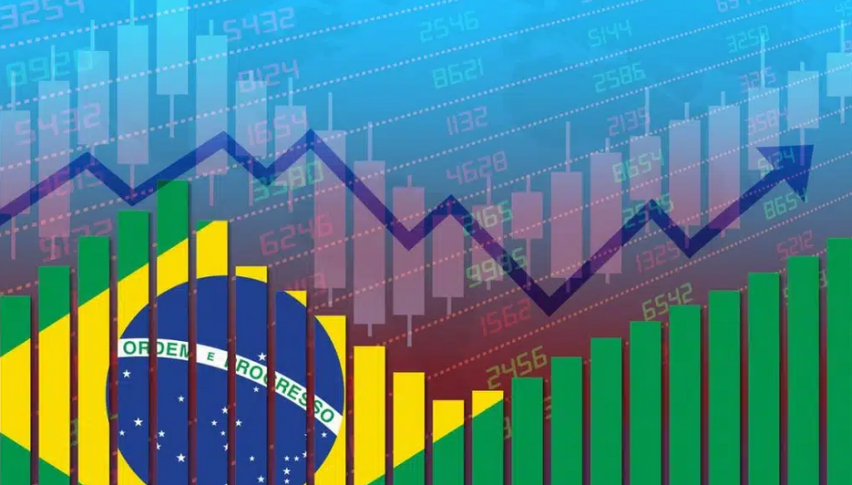Brazil’s Inflation Target Heats Up as Growth Forecast Slips
The current account deficit for 2025 widened to $70 billion from a previous $58 billion, while the 2026 deficit remains at $58 billion.

Quick overview
- Brazil's central bank has lowered its 2025 economic growth forecast to 2.0% from 2.1%.
- Inflation is projected at 3.1% for Q1 2026, slightly above the 3% target.
- The current account deficit for 2025 has widened to $70 billion, while the 2026 deficit remains at $58 billion.
- The central bank is prepared to resume interest rate hikes if necessary, maintaining the Selic rate at 15%.
Brazil’s central bank trimmed its 2025 economic growth forecast to 2.0% from 2.1%, according to its quarterly monetary policy report released Thursday.

For the first time, the bank projected inflation at 3.1% for the first quarter of 2026, slightly above its 3% target.
The report also estimated GDP growth of 1.5% for 2026, while keeping its forecast for foreign direct investment unchanged at $70 billion for both 2025 and 2026.
External accounts were revised: the current account deficit for 2025 widened to $70 billion from a previous $58 billion, while the 2026 deficit remains at $58 billion. On trade, the projected 2025 surplus was cut to $54 billion from $60 billion, with a $61 billion surplus expected in 2026. Bank credit growth was revised upward to 8.8% in 2025 and 8.0% in 2026.
Possible Rate Hikes on the Horizon
On Tuesday, the central bank said it would not hesitate to resume a cycle of interest rate hikes if necessary, though it added that the economy is evolving broadly in line with expectations and remains consistent with current policy guidance.
Minutes from its latest meeting, where it held the benchmark Selic rate steady at 15% for the second time in a row — the highest level in nearly two decades — emphasized vigilance, particularly over service-sector inflation.
A rate hike in Brazil could help strengthen the real, attract capital inflows, and shift the regional balance. That, in turn, could increase financial pressure on Argentina, especially given its limited monetary policy room.
- Check out our free forex signals
- Follow the top economic events on FX Leaders economic calendar
- Trade better, discover more Forex Trading Strategies
- Open a FREE Trading Account